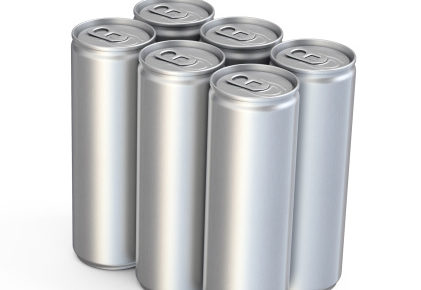Chicago, IL—Building on WholeFoods’ energy drinks coverage from last month, the American Medical Association has added its two cents about energy drink and caffeine consumption.
In response to the attention energy drinks and their adverse reactions have been getting along with the heat being put on the U.S. Food and Drug Administration (FDA) to regulate them, the Journal of American Medical Association (JAMA) published several papers about energy drinks and the dangers of high-caffeine intake.
Listed on the JAMA Patient Page, one of the published articles states offers a chart of caffeine content in various energy drinks and other caffeinated beverages. A 16-oz cup of brewed coffee contains 170 mg of caffeine whereas 5-Hour Energy has 207 mg, one of the highest caffeine levels among its contenders. The paper says that an adult should only consume 500 mg of caffeine per day and an adolescent should only consume 100 mg. Children shouldn’t use energy drinks at all.
At the same time, a JAMA position paper from Kent A. Sepkowitz, M.D., attempted to update readers about U.S. energy drinks sales, recent FDA activity, energy drinks-related adverse events, dangerous caffeine levels/interactions and more. Sepkowitz also stated physicians should ask patients about their energy drink intake, and insinuated that energy drinks are part of an unregulated industry by skirting FDA through the 1994 Dietary Supplement and Education Act. The Patient Page on energy drinks also stated, “Energy drinks are not regulated by the US Food and Drug Administration.”
FDA does, however, regulate energy drinks, either through dietary supplements or foods rules.
With the concerns of health risks and energy drinks in the limelight, The New York Times (NYT) published its take on it with a Page One lengthy feature about energy drink ingredients and what several prominent players in the category claim.
For instance, the article discusses the affects of taurine, an amino acid. Red Bull has claimed that it offers several heart and brain health benefits, and is a “detoxifying agent”(as evidenced by 2,500 studies). Nonetheless, regulators like the European Commission, says NYT, has yet to approve these claims.
One category leader claims its 5-Hour Energy product has no crash after consumption, but NYT discusses the results of a study finding otherwise. Some 24% of participants felt tired after a few hours and in need of a nap or another drink. The company rebuts to say, in the fine print, there is no sugar crash, however, NYT says the product does not contain sugar.
Published in WholeFoods Magazine, February 2013 (online 1/7/13)










